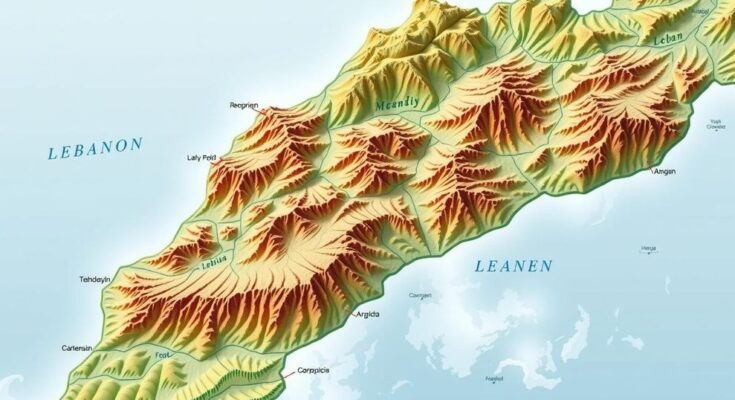Lebanon denied Israeli claims that border talks might lead to normalization. Discussions focus on resolving issues under UN Resolution 1701 and do not constitute direct negotiations. Israeli officials indicate a desire for normalization, while local leaders express concern over security implications. The ongoing situation remains influenced by territorial disputes and the internal political climate in Lebanon.
On Wednesday, sources within President Joseph Aoun’s office refuted Israeli assertions that ongoing discussions concerning a permanent border with Israel might culminate in normalization of relations between the two nations. These sources reported to Al-Mayadeen, a Hezbollah-affiliated network, that the formation of three committees intended to address contentious issues is simply in accordance with the implementation of UN Resolution 1701, emphasizing that there are no direct negotiations occurring between Lebanon and Israel.
The established committees aim to resolve several pressing issues, such as border disputes, issues arising from the 2006 conflict, the five areas occupied by Israel post-war, and the situation surrounding Lebanese detainees. In light of earlier statements by Israeli officials indicating a desire for normalization, Lebanon’s leadership asserted, “Any claims that these committees serve as a prelude to normalization are false.”
Israel’s aspirations for normalization were articulated by a senior official, who noted the Prime Minister intends to advance relations with Lebanon, supported by the belief that recent changes in Lebanon could facilitate such developments. He remarked, “The Prime Minister’s policies have already changed the Middle East, and we want to continue the momentum.”
Following diplomatic discussions in Naqoura, the Prime Minister’s Office disclosed that representatives from the Israeli Defense Forces, the United States, France, and Lebanon participated in the talks. They highlighted that as a diplomatic gesture towards Lebanon’s new president, Israel agreed to release five Lebanese detainees to aid the political landscape within Lebanon.
The formation of three joint working groups was confirmed during this meeting, intended to stabilize the region by addressing Israeli-controlled southern Lebanese points, discussions on the Blue Line, and the issue of Lebanese detainees. An official stated, “This is a dramatic breakthrough,” suggesting that future discussions will include an Israeli government representative, moving beyond military representatives.
However, concerns were voiced by regional leaders, such as David Azoulay, who expressed apprehension regarding potential compromises in the agreements being pursued. He remarked that residents of northern Israel should not be held hostage to decisions that could foster insecurity. Additionally, Moshe Davidovich cautioned that while agreements may yield a sense of security, the absence of the IDF’s presence along the borders remains critical for actual security.
According to sources in the Hezbollah-affiliated Al-Akhbar, the release of the detainees should not be viewed as an act of goodwill from Israel, asserting that these talks commenced earlier. It was noted that Aoun had solicited American intervention regarding the release of detainees after Lebanon extended its ceasefire agreement. The lack of American responsiveness reportedly led to embarrassment for the Lebanese government.
In summary, Lebanon’s government strongly denies any links between ongoing border discussions with Israel and potential normalization of relations, framing these discussions as part of UN Resolution 1701. Israeli officials have expressed hopes for improved relations, yet local leaders emphasize concerns about the implications for security. As negotiations progress, the complexity of territorial claims and internal political dynamics in Lebanon remain significant factors influencing the outcomes of these discussions.
Original Source: www.ynetnews.com




